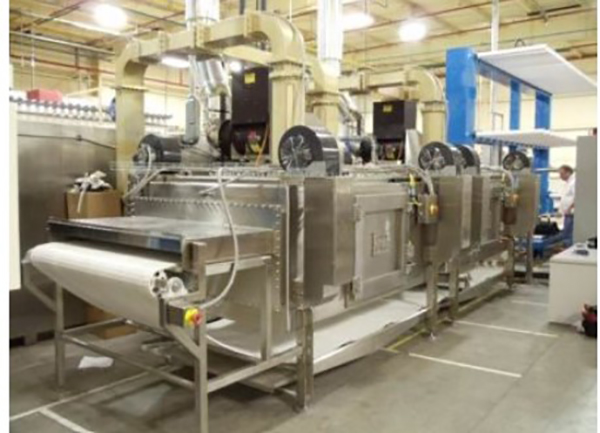Microwave Heated Systems

Microwave furnace technology can now be beneficially utilized for advanced material processing on a commercial scale. Trust Harper’s years of industry leadership for the careful design of microwave equipment based on your material’s unique properties to yield a superior product.
Is Microwave a fit?
Overcome the challenges of conventional heating. Let Harper be your guide to discover if your advanced material is suitable for microwave systems. Our capabilities cover a range of applications such as drying, sintering, activation, controlled pyrolysis, oxidation, and carbonization for products such as ceramic powders, shaped ceramics, carbon materials, and battery materials.
Through our decades of furnace design experience, our team understands the many challenges associated with conventional heating. In some applications, it can be difficult to get convective heat deep in a powder bed, control contamination for abrasive powders, or remove moisture through the entirety of the product. Microwave furnace heating can be a solution in these and many other scenarios.
There can be many misconceptions when microwave heating is considered during the design process. Microwaves can only heat from the inside out? Microwave furnaces are only for batch processing? Harper can help determine if your material is the right fit for a continuous furnace to optimize your process, whether a Rotary Tube, Belt Conveyor, or other type of system.
Benefits of Microwave Heating
Trust Harper’s expertise to optimize your furnace design. Microwave heating provides significant benefits in certain applications over conventional heating. As the material to be processed is the heating element, the response to the microwave energy input depends on the properties of the material. Harper can assist in finding the right system design to take advantage of microwave benefits, such as:
- Energy Efficiency – only the product is heated, reducing operating costs
- Rapid Processing – load heated directly
- Flexibility – ability to process in different environments
- Material Purity – product contamination can be dramatically reduced
- Increased Volumetric Utilization – avoids limitations of thermal conductivity, shadowing, convective heat transfer
- Smaller Footprint – little or no cooling or insulation required
- Control over Moisture Content – coupling with water is very effective
- Volumetric Heating – Little or no gradient from the outside to interior